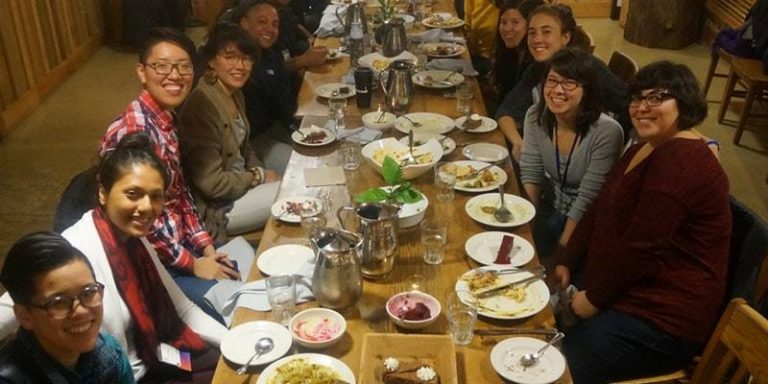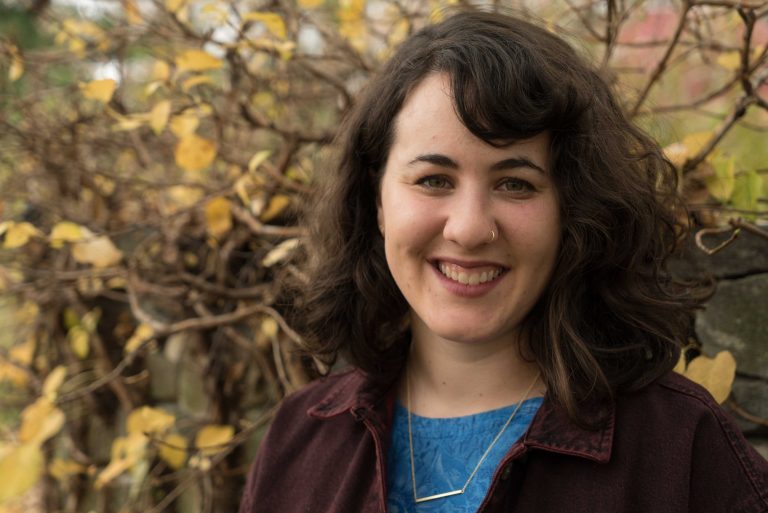Personal (and Collective) Liberation Through Giving
What guidance would you give to a room full of fundraisers about how to ask you for money?
That was the question I tried to answer on a “#RealTalk with Major Donors” panel at the recent Allied Media Conference in Detroit. AMC is a conference led by people of color and queer and trans folks, a space for artists and organizers from marginalized communities to share their stories. By contrast, I’m a white cis woman from an upper-middle-class family. Because I’ve been involved with RG for four years, I’ve publicly shared my ‘money story’ many times over. But if I was going to speak on a panel at AMC, I was anxious to share my story in a way that would be useful.
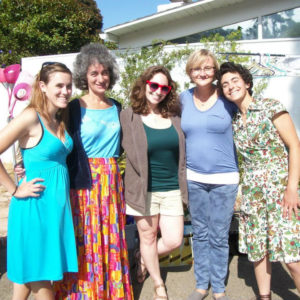
So, during the panel, I told the audience to remember that asking me for money is in service of my personal liberation — liberation from isolation and insecurity created by whiteness and class privilege.
I admit, in part, I thought it might simply make folks feel better about asking donors like me for money. After all, I’d gotten a taste of the fear of rejection, the self-doubt, that fundraising can inspire. But in the last few weeks since the panel, I’ve thought more about why I said it. What did I mean by personal liberation? Why did I believe that giving away money helps get me there?
Two years ago, I’d never heard the phrase “personal liberation.” I’d just moved to Portland for my first job as a software engineer. My starting salary was $80,000. Disgusted by income inequality, and having discussed wealth redistribution in an RG praxis group, I decided to give 10% of it away. At the same time, new to Portland, I was eager to join a community. So when I heard about Social Justice Fund (SJF) and its Giving Projects — cohorts of local volunteers who donate, raise money, and give out grants over the course of six months– I jumped at the chance.
The Portland Giving Project made giving easy. We funneled resources to community-led organizations that fight for racial justice and self-determination; I felt energized learning about their radical social justice work. And, since we used consensus to determine which organizations to fund, I could trust in the group’s wisdom rather than struggle alone to decide where to give.
But as for finding community… that was harder. In the cross-class, multi-racial cohort, my whiteness and class privilege confronted me in the form of perfectionism and self-censorship. Unsure of what to do or say, I felt separate from the group: an atom moving around in space, bouncing off other atoms.
At one point during the Giving Project, the facilitators asked the white members of the cohort, “What is your personal stake in people of color coming into power?” I fumblingly unearthed an answer, something related to the gut-clench of being a white person living in a historically-black, gentrifying neighborhood. It was honest but shallow.
Two years later, as RG staff member Kirin Kanakkanatt helped me prepare for the AMC panel, this question resurfaced. I’d suggested that I talk about my giving plan. She challenged me to go deeper. “Ground yourself in the heart-center of your story. How is your giving plan in service of personal and collective liberation?”
I hadn’t heard the phrase personal liberation before. It made me think of the facilitators’ question. They’d wanted us to get real, on an emotional level, about why we were in the room. Remembering the separateness I’d felt — that I still feel — I discovered I had a different answer than before.
***
I grew up in an upper-middle-class, white, Jewish family. Our neighborhood, mostly doctors and professors living private lives in single-family houses, was located in the wealthy beach town of La Jolla, California. The town had been notoriously hostile to Jews and people of color for decades, although Jewish families found a foothold after UC San Diego opened in the 1960s. To this day, the area is heavily white and Christian. Many of my friends in high school were white — half from middle-class families, half from very wealthy ones — and I was ignorant of the stories of people of color, working class folks, people without citizenship or papers.
My father began his career as a cancer researcher, but as I was leaving high school, he moved into the business side of biotech and eventually received an income in the range of $250,000 per year. With my wealthy grandparents’ help, he and my mother, a musician, paid for my college education at Stanford; I have no student debt. It was an immense gift from my family. Until that point, I hadn’t observed the people around me asking for help, boldly sharing, or depending on one another — everything to do with money was out of my sight. Even after college, despite being financially clueless, I wanted badly to be self-reliant. This, along with the deeply-rooted Jewish fear of the worst, translated into perpetual anxiety about spending money and wasting what I’d been given. It was hard to see myself as part of any extended community or interdependent network.
So I’ve come to understand that for me, personal liberation means letting go of perfectionism. It means connecting instead of isolating, sharing resources instead of keeping them close, and believing in my self-worth as well as the worth of others. Atoms may seem lonely and alone, but really they are affected by, even bonded with, the atoms around them. My liberation, likewise, is part of the liberation of all people.
***
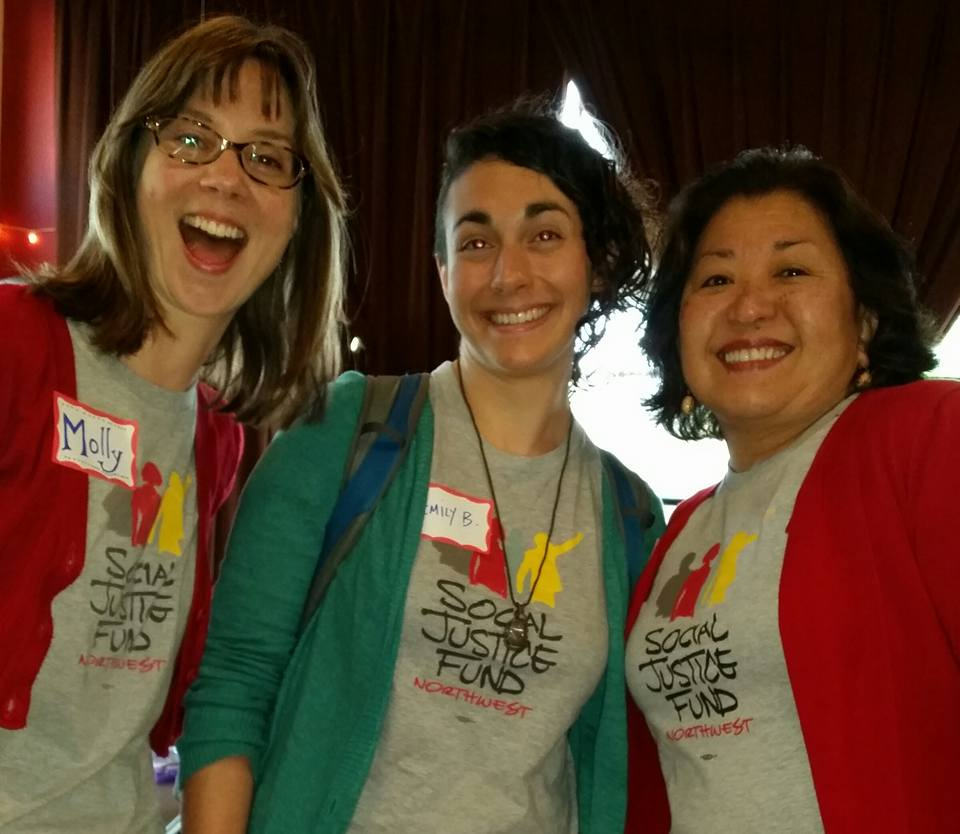
But I could barely bring myself to ask my coworkers for money. I found myself thinking, how dare I ask? Even if they now earn six figures, many of them did not grow up as comfortably as I did. I felt ashamed to ask for their hard-won resources when I had gotten mine so easily.
This year, though, I joined another Giving Project. And a few weeks ago, I hosted a fundraiser and asked 20 coworkers to give to Social Justice Fund. They collectively gave over $5,000 — a solid start.
Had I overcome the fear and shame I’d felt around asking for money? Nope. I simply feel even more strongly that asking asking and giving — money to POC-led, grassroots organizations is an opportunity to overcome individualism and connect with a movement larger than ourselves.
Ever since the 2016 election, I’d seen some of my coworkers searching for ways to get involved, to get active. We started making phone calls to our senators every Tuesday. We created a chatroom dedicated to social justice. I saw a few coworkers at town halls and in the streets. But overwhelmingly, people seemed unable to figure out what to do. I began to view those coworkers the way I viewed myself when I first moved to Portland: wanting to do something, to be part of something.
I imagined that in the act of giving to Social Justice Fund, my coworkers might start to feel the same sense of purpose and personal growth that I have begun to feel in association with giving. That they might feel connected, communal, abundant. Whether they’d grown up with class privilege or not was irrelevant. This had to do with transforming ourselves from isolated atoms into interconnected molecules.
As I continue to give and fundraise, I have no doubt that the voices of fear and shame will grow loud again. That’s why I’m thankful to have been on the AMC panel. When I told the room that asking me for money is in service of my personal liberation, I’d wanted folks to hear it and take heart. Equally, I needed to hear it myself.
Emily Bookstein is a member of Resource Generation and chapter leader in Portland, Oregon. Listen to Emily on the AMC Panel, Real Talk with Major Donors, here.
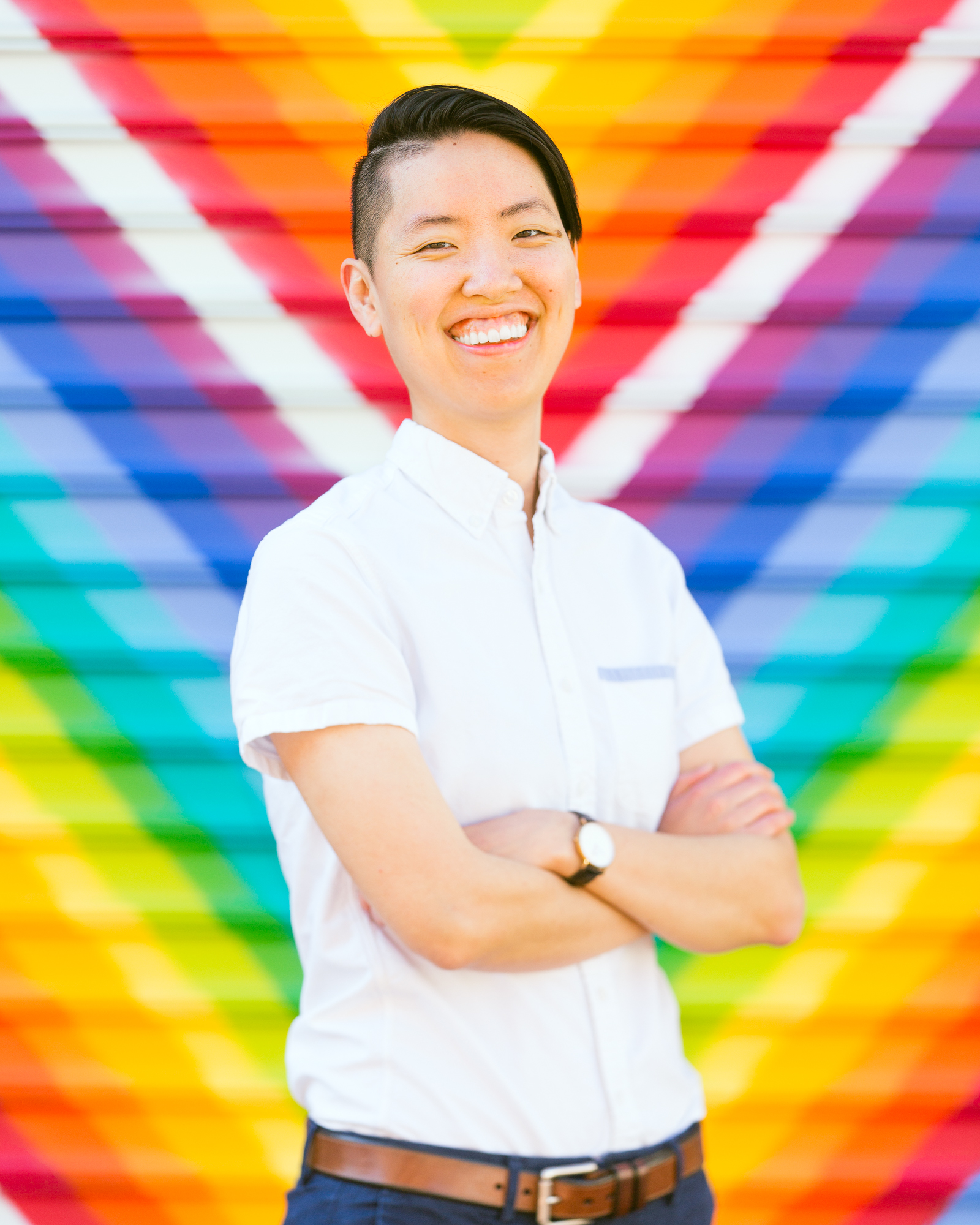
Iimay Ho is the Executive Director of Resource Generation. Resource Generation is the only organization in the U.S. organizing young people with wealth toward the equitable distribution of wealth, land, and power.

